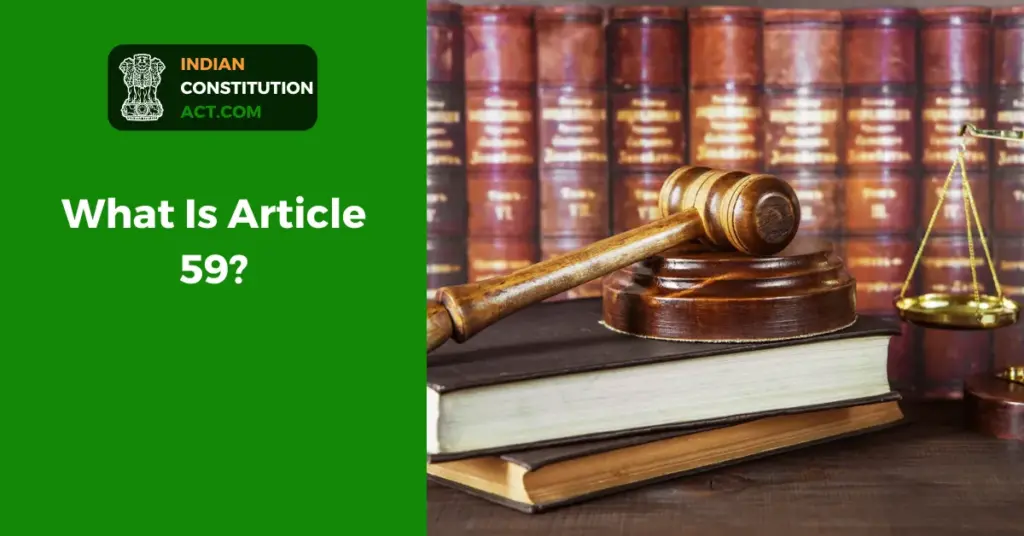We want to tell you that the Indian Constitution is divided into articles and these articles are divided into 22 chapters. In these 22 chapters, the fifth chapter talks about ‘The Union’, which includes all the articles from article 52 to article 151. In this blog, we will discuss Article 59 of the Indian Constitution with examples. We have explained Article 59 to you in this blog.
Table of Contents
What Is Article 59?
Let us read Article 59, Part 1st, and Chapter 5th of the Indian Constitution. Article 59 states conditions related to the President’s office. Let’s read and understand those conditions one by one.

- The President shall not be a member of either House of Parliament or of a House of the Legislature of any State, and if a member of either House of Parliament or of a House of the Legislature of any State be elected President, he shall be deemed to have vacated his seat in that House on the date on which he enters upon his office as President.
Explanation in simple words: The first condition states that the President cannot be a member of any house of Parliament, Rajya Sabha, or Lok Sabha. And if a member of either House of Parliament or of either House of the Legislature of a State is elected as President, he shall be deemed to have assumed the position of President and to have resigned from the previous position.
For Example: Suppose a candidate is a member of the legislature of any state and he gets elected as President, then the President will have to leave his previous position.
Also read: Article 57 Of The Indian Constitution: Eligibility For Re-Election Of President
2. The President shall not hold any other office of profit.
Explanation in simple words: The President should not hold any other office of profit. Office of profit means any position through which you achieve financial gain, advantage, or benefit.
3. The President shall be entitled without payment of rent to the use of his official residences and shall be also entitled to such emoluments, allowances, and privileges as may be determined by Parliament by law and, until provision in that behalf is so made, such emoluments, allowances, and privileges as are specified in the Second Schedule.
Explanation in simple words: The President can live in the given authorized residences free of cost and will receive a salary, allowances, and other advantages arranged by Parliament. Until Parliament makes a judgment, the salary, allowances, and benefits listed in the 2nd schedule will apply.
4. The emoluments and allowances of the President shall not be diminished during his term of office.
Explanation in simple words: Whenever a person holds office as President, he is given a certain salary for the service and an amount of money to help the President pay for something that he/she needs. We hope you have understood Article 59 of the Indian Constitution, Part 1st, and Chapter 5th.
